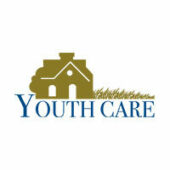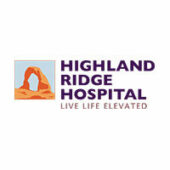
Trauma and PTSD therapists in Saratoga Springs, Utah UT

Youth Care Treatment Center
Treatment Center
Youthcare is a top-tier treatment center offering trauma therapy services to adolescents who are suffering from the effects of traumatic experiences. Our experienced and compassionate staff provide evidence-based and holistic approaches to trauma therapy, including EMDR, Sensorimotor Psychotherapy, Cognitive Behavioral Therapy, Dialectical Behavioral Therapy, and Trauma-Focused Cognitive Behavioral Therapy. Our goal is to help our clients gain insight and understanding into their trauma and to develop the skills and resilience needed to heal and move forward. Our trauma therapy services are tailored to meet the needs of each individual client, so that they can find a sense of peace and security in their daily lives.
Ryan Landes
Counselor/Therapist, CMHC
I'm trained in EMDR, a treatment developed for people who have PTSD and trauma.
Wendy Jensen LCSW
Licensed Clinical Social Worker, Licensed Clinical Social Worker, Certified Hypnotherapist, Diplomate Comprehensive Energy Psychology
Every year, more than 8 million people in the United States struggle with Post Traumatic Stress Disorder (PTSD) along with another 350 million people worldwide. PTSD can occur in people who have experienced or even witnessed a severe trauma, and it affects areas of the brain connected to managing difficult emotions, especially fear and anxiety. PTSD can create intense physical, emotional, and mental distress, and if left untreated, it can lead to long-term psychological and physiological damage. Thankfully, energy psychology – specifically acupoint tapping -- can help!
More Potent Than Other Therapies
Tapping on acupuncture points while bringing the memory of a traumatic event to mind sends signals to emotional centers of the brain, specifically the amygdala and other areas of the limbic system. This can counter the body's threat response. Acupoint tapping has been shown to reduce:
Exaggerated responses to triggers
Hyperarousal in the limbic system
Insomnia
Elevated levels of cortisol and other stress hormones
Impaired immune functioning
Distortions in learning and memory, and
Imbalances between sympathetic and parasympathetic nervous system activity
The 7 Advantages of Acupoint Tapping in the Treatment of PTSD
Advantage #1: Fewer Treatment Sessions
Cognitive-behavioral therapies are the treatment of choice in most conventional mental health settings. They average between 12 and 16 sessions for treating PTSD. Nonetheless, up to two-thirds of those completing the treatment still carry the PTSD diagnosis after treatment. Meanwhile, a study of the use of EFT for treating PTSD in a public health facility in Scotland authorized patients to receive up to 8 treatment sessions. Voluntary termination of treatment occurred, however, after an average of 3.8 sessions, with strong positive outcomes on post-treatment measures.
A landmark study by Dawson Church and colleagues found that 86% of 49 war veterans no longer scored in the PTSD range after 6 hour-long EFT sessions. The study has been replicated with similar outcomes.
Advantage #2: Lasting Results
Studies reporting treatment effects for the use of acupoint tapping and energy psychology in PTSD typically show significant overall reductions in symptoms and their impact, and these improvements tended to stand the test of time.
Advantage #3: Low Risk of Negative Side-Effects
Existing evidence strongly suggests that energy psychology and acupoint tapping can be safely used to treat PTSD.
Advantage #4: Minimal Training Needed
A seasoned clinician can learn and begin applying a basic tapping protocol very quickly. Even people who don’t have extensive mental health backgrounds can be effective with the method as long as they understand the boundaries of their scope of service. For instance, several studies used life coaches rather than licensed mental health professionals to use tapping sessions in the treatment of PTSD and found they were nearly as effective.
Advantage #5: Effective for Groups
Unlike many psychotherapy methods that require one-on-one sessions, acupoint tapping can be highly effective when delivered to groups. This makes it suitable for combat battalions returning from deployment, refugees living in camps, caregivers returning from humanitarian missions, and children in classrooms.
Advantage #6: Improves Quality of Life and Reduces Medical Costs
When PTSD is not successfully treated, it produces adverse changes in the brain, and the impact extends beyond the patient and their family. If symptoms persist, the data shows increased lifetime hospitalization, disease burden, and medical costs. By helping people overcome PTSD, acupoint tapping positively impacts their quality of life and society's medical costs.
Advantage #7: In-Person Sessions Not Required
A study focused on the effects of EFT delivered by phone versus in-office sessions showed that just 6 phone treatment sessions could effectively alleviate clinical PTSD symptoms in 67% of patients. In another study, 26 women diagnosed with fibromyalgia showed significant improvement in symptoms such as pain, anxiety, depression, vitality, social function, activity level, and performance problems following their participation in an online EFT treatment program. This makes it possible to utilize electronic media to offer acupoint tapping treatments to underserved populations or others who cannot access conventional in-person therapy, such as military personnel in combat zones and those living in rural areas.
For millions of people with PTSD, energy psychology -- specifically acupoint tapping -- offers much-needed hope and relief. As discussed in this article, acupoint tapping can help large numbers of people relatively quickly. It is a powerful intervention that is proving to be an effective antidote to living with the pain of PTSD.
As a survivor myself, I've spent a lifetime studying the effects of trauma on the body and the brain. I specialize in helping people understand the ways trauma impacts their lives, their relationships and their emotional and behavioral experiences. Trauma takes place as a singular event or many events that overwhelm a person's ability to cope. Unresolved trauma is complicated and it causes many in-the-present life problems. This is confusing because we often have no idea why we are getting upset about something, feel certain ways or have unexplainable anger. Whether it be to heal with the impact of discrete traumatic events or complex interpersonal trauma, I use a combination of techniques from Energy Psychology such as Emotional Freedom Technique (or Tapping, as most people know it), Tapas Acupressure Technique, RIM Hypnotherapy, EMDR, Cognitive-Behavioral techniques, DBT, grounding and centering techniques and Shamanic soul retrieval to help you build safety and seIf worth. I teach emotion regulation skills and we use the therapeutic relationship itself so that you can feel more grounded and secure in connection with yourself and others.
Cameron Staley
Psychologist, Ph.D.
Most of us experience traumatic events and want to learn ways to more effectively navigate these concerns. I offer practice strategies and skills to begin navigating PTSD symptoms to begin living your life more fully today.
Highland Ridge Hospital
Treatment Center
Highland Ridge Hospital offers specialized treatment programs for individuals struggling with PTSD and trauma-related disorders. Our experienced team provides personalized treatment plans that address the underlying issues and triggers for trauma, as well as provide immediate crisis intervention and safety planning. We use evidence-based therapies such as cognitive-behavioral therapy, EMDR, and medication management to help clients manage their symptoms and improve their overall mental health. Our comfortable and supportive environment provides a space for healing and growth, and our commitment to aftercare ensures ongoing support and resources for lasting recovery. If you or someone you love is struggling with PTSD or trauma-related disorders, Highland Ridge Hospital is here to provide the care and support you need.
Sean DeFreese - LCSW
Licensed Clinical Social Worker, LCSW
Many times, those who suffer from Trauma or PTSD attribute all, or a large portion, of blame on themselves for whatever happened. This narrative grows throughout their lives, resulting in poor job performance or employment issues, relationship problems, difficulty in school or college, emotional challenges or outbursts, etc. However, this narrative of blame and responsibility is a false narrative painted by the emotional trauma and stress of the event.
We will work to untangle this narrative, find healing, and develop and strengthen healthy coping mechanisms to deal with triggers that may come from daily living.
Utah Center for Evidence Based Treatment
Psychologist, Ph.D.
The UCEBT Trauma, Stress, and Resilience (TSR) Program provides expert care in the treatment of stress and trauma-related issues.
Most people at some point in their lives will experience a trauma or other difficult event, such as a loss of a loved one, medical illness, financial stressors, work burnout, divorce, etc. Depending upon our unique past and current circumstances, these events impact each of us differently. In the aftermath, some may develop symptoms of posttraumatic stress disorder (PTSD), depression, grief, or experience other life challenges. In spite of our best efforts, sometimes the problems persist and common coping strategies (like isolation, working long hours, alcohol, etc.) can create new problems.
Fortunately, there are now several proven therapies to get people unstuck and tap into our natural human ability to heal after a painful life event. Our center is committed to offering the most effective treatment options for both supporting you during a difficult period as well as long-term skills to foster resiliency for the future.
There are several gold standard evidence-based treatments right now for trauma. Our clinicians in this program have formal training and expertise in:
Acceptance and Commitment Therapy
Cognitive Processing Therapy -- CPT is a therapy that focuses on helping individuals identify and challenge unhelpful thoughts and beliefs related to their traumatic experiences. It aims to promote cognitive restructuring and reduce distressing symptoms. CPT has been recommended as treatment for post-traumatic stress disorder (PTSD) by organizations such as the American Psychological Association (APA) and the U.S. Department of Veterans Affairs (VA/DoD). This episode of This American Life does a great job capturing what to expect in CPT and illustrating its effectiveness: https://www.thisamericanlife.org/682/ten-sessions
Cognitive Behavior Therapy for Insomnia
Trauma-focused Cognitive Behavioral Therapy Interventions -- TF-CBT is a structured therapy that focuses on helping individuals process and cope with traumatic experiences. It combines cognitive-behavioral techniques with trauma-specific interventions. TF-CBT has also been widely recommended as a treatment PTSD by the APA and the VA/DoD.
Eye Movement Desensitization and Reprocessing Therapy (EMDR) -- This modality uses eye movements or other forms of bilateral stimulation to help individuals process traumatic memories and reduce distressing symptoms. In contrast to the "top-down approaches" listed above, this is a "bottom-up approach," meaning that it starts with addressing the physiological and sensory aspects of an individual's experience before moving on to cognitive or higher-order processes. This approach recognizes that trauma can have a profound impact on the nervous system and bodily sensations. The goal is to help individuals process and release traumatic experiences by accessing the body's wisdom and resources. By directly targeting the limbic system (the feeling center of the brain) and sensory receptors throughout the body, a bottom-up approach aims to undo trauma's imprint on the body and promote healing. It acknowledges that trauma responses are not solely cognitive but also involve physiological and sensory aspects.
Prolonged Exposure -- PE is a type of therapy that involves gradually and systematically exposing individuals to trauma-related memories, situations, or objects that they have been avoiding. The goal is to help individuals confront and process their traumatic experiences, reducing avoidance and fear. PE has also been recommended as a treatment for PTSD by the APA and the VA/DoD.
The Gottman Method for Couples Therapy
Written Exposure Therapy (WET) -- Sometimes, flashbacks can be so debilitating and spike our SUDS so suddenly, that all of the above-mentioned modalities end up doing more harm than good. This modality is a brief, trauma-focused talk therapy that involves a series of [typically] five 30- to 45- minute sessions. The therapy involves writing about the thoughts and feelings experienced during the traumatic event, which allows individuals to engage with the memory and potentially overcome shame or embarrassment associated with the experience. The goal is to help individuals find new ways to think about their traumatic experiences and gain relief from PTSD symptoms. There is little 'down time' between sessions, meaning an individual could schedule all five sessions back-to-back and effectively stop flashbacks or other reexperiencing symptoms within a week, which no other modality can match in terms of efficiency.
Tivoli Cousineau
Marriage and Family Therapist, LMFT
I am a consultant in EMDR therapy, helping other therapists to become certified in EMDR. I have extensive experience working with clients' with complex trauma and PTSD.








